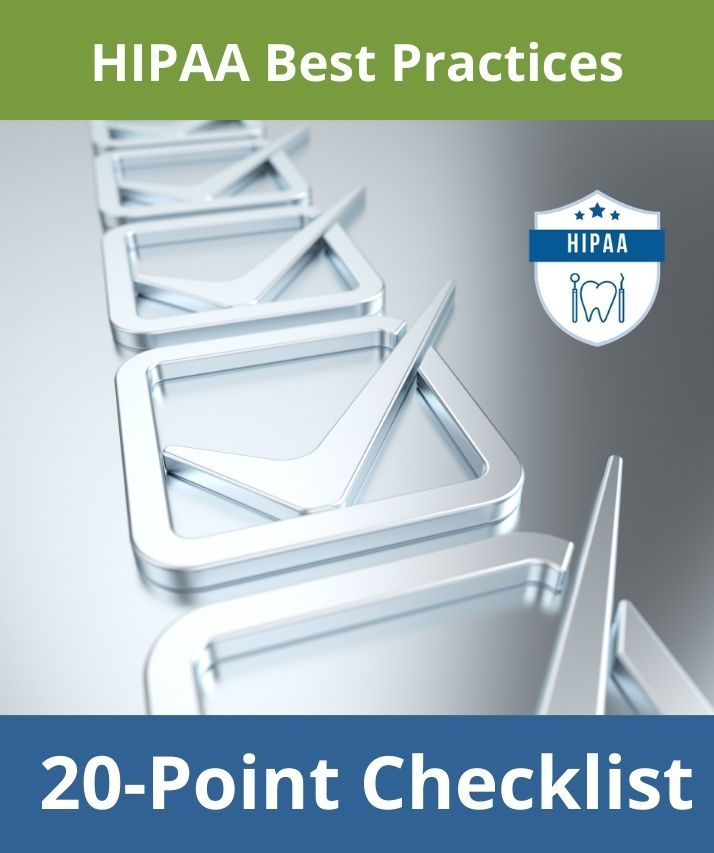Dental Practices Increasingly Targeted In Cyber Attacks
How To Protect Your Practice
Dental offices rely on technology more than ever before with digital technology playing a key role in appointment scheduling, billing, charting, clinical procedures, electronic medical records (EMRs), and more. However, the threat of a cyberattack to your dental practice is also significantly higher as dentists are increasingly targeted by cybercriminals with security breaches, ransomware, and malware attacks that can seriously compromise and even shut down your practice’s networks.
Why Are Cybercriminals Targeting Dental Offices?

Cybercriminals are counting on dental offices to have less stringent security policies in place compared to other healthcare entities and larger organizations. Many hackers will even target the smaller dental practices assuming these offices may not have the more sophisticated security systems or adequate employee security guidelines and training as compared to larger, more established organizations.
Hackers believe that many dental offices have an underinvestment in cybersecurity, both financially and in terms of employee security measures and training, knowing that one unintentional mis-step from only one employee could make the entire network vulnerable. Cybercriminals also understand that dentists may have a large number of patient records.
A Rise In Mobile Security Attacks
Dentist offices, and other businesses, have also seen an increase in security breaches through mobile devices. Cybercriminals are employing phishing attacks through a variety of approaches including email, social media, messaging apps, etc. A significant number of security breaches are also due to lost or stolen mobile devices, tablets, and laptops.
The rise in these mobile security attacks can be attributed in part to COVID-19 with more employees working remotely from their mobile devices. This scenario combined with the possibility of accessing sensitive patient data makes dental practices and healthcare facilities an attractive target for cybercriminals.
The Cost of a Cyberattack is High
The cost of a cyberattack on your dental practice can be extremely high not only from a financial standpoint, but in damaged reputation, expenditure of valuable resources, and the loss of client trust.
The Health Insurance Portability and Accountability Act (HIPAA) requires healthcare providers take measures to protect the privacy of patient health information, and the HIPAA Breach Notification Rule requires practices to notify every patient of record that a breach has occurred.
It can be long and arduous process to repair the damage to your practice’s reputation and to regain the trust of your patients. Additionally, the financial penalties for HIPAA violations can be very costly to a practice, ranging from $100-$50,000 per violation.
Protecting Your Practice
While this can be alarming for dental practices, there are tangible steps you can take to protect your practice.
1. Make Security A Priority For Everyone On Your Dental Team
Your employees are your front line of defense from a cyberattack as well as your most vulnerable component. The most common potential for a security breach is by your own dentists and team members who use the network on a daily basis.
Cybercriminals will take advantage of human error and vulnerabilities. One mistake from just one employee can put the security of your entire network at risk.
You can reduce this risk through:
- Security training and awareness including employee understanding and compliance with HIPAA regulations
- Two-step authentication of passwords, encrypted passwords, and stringent password requirements
- Security measures and requirements including security guidelines for remote workers
- The placement of computers where screens are not visible to non-employees
- Ongoing communication to team members regarding their responsibility to upholding the trust of your patients and protecting sensitive data
2. Conduct a Professional Cybersecurity Risk Assessment and Incorporate Needed Security Measures
Conduct an audit of your security protocols by a reliable, outside security analysis team to ensure appropriate cybersecurity measures are in place such as firewalls, secure/update-to-date operating systems are in place, wireless networks are protected from public view, and antivirus software is properly installed on each device and checked regularly.
The assessment should also include:
- Cybersecurity awareness training for the dentist(s) and all employees
- Vulnerability scanning to identify security vulnerabilities in the practice’s procedures, computers/devices, and network
- Penetration testing to assess the security strength of your systems and processes
- Working closely with your IT team and staff members to remedy any security gaps and put preventative security measures in place
3. Develop A Disaster Recovery Plan
Make sure you have a solid disaster recovery plan (DRP) in place should your dental practice become the victim of a cyberattack. This requires advance planning and risk-aversion measures such as purchasing cyber insurance and developing a plan of action should a breach occur.
- Identify in advance a dedicated team to focus on implementing the pre-developed disaster recovery plan.
- Determine if protected patient data has been compromised and to what extent.
- Notify appropriate authorities. However, be careful and consult your attorney and security team to follow appropriate steps and protocol.
- Take action immediately to identify how the security breach occurred and take immediate action to remedy. Practices that are a victim of a security breach can be the target of a subsequent attack(s) due to vulnerabilities that enabled the original breach.
- Following DRP implementation, the disaster planning team should identify best practices and lessons learned as well as measures that have been put in place to avoid future attacks.
4. Seek Ongoing Professional IT and Security Support
The good news is that a reliable dental technology support team can significantly reduce the potential risks and damages from a cyberattack to your practice. Digital Technology Partners can help ensure you have the tools and support you need to protect your practice against cyberattacks.
Contact us at (770) 918-0075 or connect@dtpartners.com and let us help you develop a complete security plan to protect your data and safeguard your dental practice.






